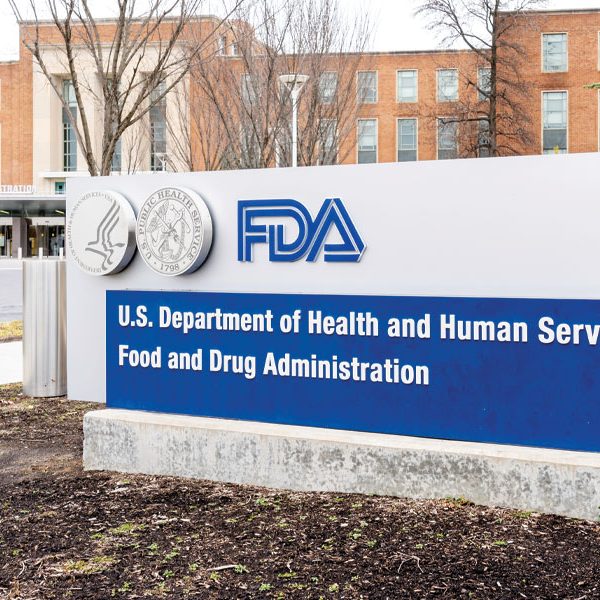Career Insights: From Military Service to Regulatory Strategy – Ritchie Patton’s Journey at MMS

In this first edition of our new Career Insights blog series, it was incredible to speak with Ritchie Patton, Associate Director of Regulatory Strategy at MMS. In our interview, Ritchie walks us through his professional journey, applying lessons from his military service to regulatory strategy in clinical trials.
Can you walk us through your background and your professional journey?
One of the biggest things that helped me is a part of my career that is not directly related to pharmacology or the clinical trial space. I was in the military for eight years. During that time, I developed strong leadership skills, which I have carried into my career in the clinical space. I have worked on multiple clinical trials across several countries and collaborated with a wide range of people. Those leadership skills have helped propel my career forward. Eventually, I took on a leadership role at MMS, transitioning from hands-on clinical trial work to consulting and strategic planning. Where I am today is the result of that early military experience combined with deep regulatory and clinical trial exposure.
What drives you every day? What is your “why” when you wake up?
It is rooted in my desire to help people, provide service, and be proud of my work. That was easy in the military. You are defending the country, and every day, the mission is critical. Coming into clinical trials, working at the sites, and seeing our impact on patients broadened my perspective. I once met a patient with red hair who was upset because wigs in her color were hard to find. I also have red hair, so I have been growing mine for seven years to donate it. It brings me great joy to help others in any way I can. I have gone from assisting people directly or through trials to helping entire populations. I may never meet the individuals who benefit from our work, but the therapies we help bring to market are improving lives. That is what motivates me every day.
What is the best aspect of your role?
I love seeing the people I support grow and learn from what they share me. That kind of mutual learning creates a positive feedback loop with patients, colleagues, clients, mentors, and leaders all growing and working together.
What challenges have you faced in this role, and how did you overcome them?
I have struggled with impostor syndrome in the past, but my colleagues are incredibly supportive. I would talk to my line manager, Amanda Beaster, and run things by her. She would say, “ That’s great.” That is exactly what I would do.” I look up to her, and hearing that gave me the confidence to keep succeeding. Hearing our CEO, Dr. Uma Sharma, reference my input in meetings also reassures me that I am on the right path. With strong support from colleagues, I know we can face any challenge that comes our way.
What does it take to succeed in your role at MMS? What advice would you give a new hire?
Communication is key. I am a big advocate for empowerment; it is being confident in your skills, feeling grounded in your environment, and committing fully to your work. If you are not there yet, talk to your manager, mentor, or team. I try to understand the root of your uncertainty and communicate clearly so you can move forward.
Can you walk me through a typical day or week in your role?
Every day is different, but I usually start by checking my emails. I prioritize my weekly tasks and plan accordingly. The first half of my day is often filled with meetings. I actively listen and absorb everything discussed during client calls to ensure alignment. Later in the day, I work on documents, reviewing medical writing, or creating new ones. I also spend time researching to stay current with regulatory developments. The FDA offers excellent resources, including podcasts and video presentations, which I regularly use.
How will AI or other trends reshape the regulatory space in the next five years?
AI is reshaping how we work. Abilities once valued in traditional roles are now critical for prompt engineering and effectively working with AI tools. There is also a trend toward deregulation. Agencies, including but not limited to the FDA, are moving away from outdated processes and focusing more on data than traditional compliance benchmarks. Real-world evidence will be key. Rather than relying solely on costly clinical trials that can also introduce bias, we will be able to analyze real-world data from medical records to accelerate access to treatment.
How does regulatory strategy contribute to the overall success of a clinical trial?
Regulatory strategists go beyond protocol design; we look at the whole regulatory landscape. We monitor agency communications, track struggling or successful ongoing trials, and identify changes worth adopting. We are not just looking 30 feet ahead; we are planning 3000 feet ahead.
What are your interests outside of work?
My family and I run Sunday Morning Flower Farm, home to over 40 chickens. I am also building a 3,000-square-foot greenhouse. Beyond that, I am actively involved in veteran outreach; I organize board game nights to help veterans connect and build up our community.
Thank you, Ritchie, for sharing your story with us!
– The MMS Team
About Ritchie Patton
Ritchie Patton is the Associate Director of Regulatory Strategy at MMS Holdings. He leads cross-functional regulatory initiatives, supporting clients through complex drug development programs. Ritchie is strategic and has a strong foundation in regulatory science, where he translates evolving regulatory frameworks into easy, actionable steps. He excels in areas involving FDA guidance interpretation, AI implementation, and risk mitigation. His strong leadership ensures that client programs are compliant and positioned for long-term success in this competitive regulatory landscape.











